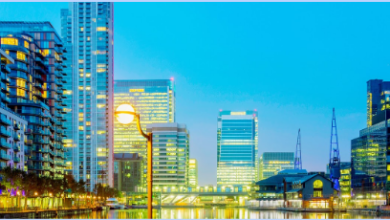What visa types support long-term property ownership in Phuket?

Thinking about buying property in Phuket? You’re not alone. Many foreigners are keen to invest in this beautiful part of Thailand, and property ownership can actually open doors to long-term residency options. In this article, we’ll explore the various visa types that support long-term property ownership in Phuket, highlighting how owning a property can enhance your chances of securing a visa.
Key Takeaways
- Owning property in Thailand can significantly improve your chances of obtaining a long-term visa.
- The Long-Term Resident (LTR) Visa requires property ownership, making it a solid option for investors.
- The Thailand Elite Visa offers long-term residency without the need for property ownership, ideal for those still exploring their options.
- The SMART Visa is tailored for investors and professionals, and property ownership can strengthen your application.
- Leasehold agreements can also provide a pathway to residency, allowing you to secure property without outright ownership.
Residency Options For Property Buyers
Understanding Residency Through Property Ownership
So, you’re thinking about buying property in Phuket and maybe sticking around for a while? Good choice! Thailand has a few options that can help you turn that property purchase into a longer stay. It’s not always a straightforward link – buying a condo doesn’t automatically grant you a visa – but it can definitely grease the wheels. Owning property can demonstrate a commitment to Thailand, which is viewed favourably during the visa application process.
Benefits of Residency for Investors
Why bother with getting residency anyway? Well, for starters, it gives you peace of mind. No more stressing about visa runs every few months. Plus, it opens doors to things like opening a bank account more easily, getting a Thai driving licence, and generally feeling more settled. For investors, it’s a sign you’re serious about Thailand, which can be useful if you’re looking to start a business or make other investments. Think of it as showing you’re not just a tourist passing through.
Key Takeaways for Long-Term Visa Applications
Okay, so what’s the bottom line? Here’s what you need to remember:
- Property ownership can support your visa application, but it’s not a guaranteed ticket.
- Different visas have different requirements, so do your homework.
- Having a lawyer who knows Thai property and immigration law is a smart move.
It’s worth remembering that the rules can change, so always check the latest regulations with the Thai Immigration Department or a qualified legal professional. Don’t rely on outdated information you find online!
Long-Term Resident Visa Benefits
Eligibility Criteria for the LTR Visa
Okay, so the Long-Term Resident (LTR) visa is aimed at bringing in people who can contribute to Thailand’s economy. It’s not just about having a bit of money; there are specific categories and requirements you need to meet. Think of it as Thailand being a bit picky about who it lets stay long-term, which is fair enough, really.
- Wealthy Global Citizens: These are high-net-worth individuals with serious assets.
- Wealthy Pensioners: Retirees with a stable, high income.
- Highly Skilled Professionals: People with skills that are in demand in Thailand.
- Digital Nomads: Remote workers earning a good income.
Each category has its own financial and professional requirements. For example, wealthy applicants need to show they have a significant amount of assets, while skilled professionals need to be working in specific industries. It’s all about proving you can bring something to the table.
Advantages of the LTR Visa
Right, so what’s the big deal about getting an LTR visa? Well, quite a few things actually. The main draw is the ability to stay in Thailand for a long time – up to 10 years with renewals. That’s a pretty sweet deal if you like the idea of making Thailand your home.
Here’s a quick rundown:
- Long-term stay: Up to 10 years.
- Fast-track immigration: Breeze through the airport.
- Tax benefits: Reduced income tax rates.
- Work permit exemptions: Easier to get permission to work (for certain categories).
- Dependents included: Family members can also get visas.
The LTR visa simplifies a lot of the usual hassle that foreigners face when living in Thailand long-term. It’s designed to make life easier for those who are contributing to the economy, whether through investment, skills, or spending power.
How Property Ownership Supports the LTR Visa
While owning property doesn’t automatically get you an LTR visa, it can definitely help your application. Think of it as a sign that you’re serious about living in Thailand long-term. It shows you’re invested in the country, both literally and figuratively.
For example, if you’re applying as a wealthy global citizen or a wealthy pensioner, owning a property can be seen as a stable investment and a commitment to staying in Thailand. It can strengthen your application and make you a more attractive candidate. Plus, let’s be honest, having a nice place to live is a pretty good perk in itself!
Thailand Elite Visa Overview
What Is the Thailand Elite Visa?
So, the Thailand Elite Visa. What’s the deal? Well, it’s basically a long-stay visa programme, but with a twist. Instead of jumping through hoops every few months, you pay a fee and get a visa that lasts for several years. Think of it as a membership that grants you entry and a bunch of perks. It’s designed for people who want to live in Thailand long-term without the hassle of frequent visa runs or complicated paperwork.
It’s not cheap, mind you. But for some, the convenience and extra benefits are worth the cost. It’s especially popular with retirees, investors, and business people who come to Thailand often.
Eligibility and Benefits
Okay, so who can get one, and what do you get for your money? Here’s the lowdown:
- Eligibility: There aren’t a tonne of requirements, but you’ll need a clean criminal record and no history of overstaying previous visas. You also need to be able to afford the membership fee, which varies depending on the package you choose.
- Benefits: This is where it gets interesting. Besides the long-stay visa itself (ranging from 5 to 20 years, depending on the package), you get things like:
- Expedited immigration processing at the airport.
- Assistance with government services.
- Access to a 24/7 call centre.
- Discounts at hotels, restaurants, and shops.
- Packages: There are several different packages available, each with its own price and set of benefits. Some are geared towards families, while others are better suited for individual investors.
The Elite Visa isn’t for everyone. If you’re on a tight budget or only plan to visit Thailand occasionally, it probably doesn’t make sense. But if you value convenience and want a hassle-free long-term stay, it’s worth considering.
How Property Ownership Affects Approval
Does owning property in Thailand help you get approved for the Elite Visa? Not directly, no. The Elite Visa is more about your financial status and background check. However, owning property can indirectly help your application. It shows that you have ties to Thailand and are serious about staying long-term. It can also make you look like a more stable and reliable applicant. So, while it’s not a requirement, it certainly doesn’t hurt.
SMART Visa For Investors
Target Audience for the SMART Visa
The SMART Visa is really aimed at a specific bunch of people. Thailand wants to attract specialists, investors, startup founders, and highly skilled professionals who can contribute to the country’s key industries. Basically, if you’ve got some serious talent or cash to invest in areas Thailand is focusing on, this visa could be for you. They’re looking for people who can bring something special to the table and help boost the economy. It’s not just about having money; it’s about having the skills or investment that Thailand needs.
Benefits of the SMART Visa
So, what’s in it for you? The SMART Visa comes with a few perks that make it pretty attractive. For starters, it offers a longer stay than your average tourist visa, allowing you to really settle in and get to work. It also simplifies the whole immigration process, cutting down on the usual red tape. Plus, certain SMART Visa holders can even get work permits sorted out more easily, which is a massive bonus. It’s all about making it easier for talented people and investors to live and work in Thailand without loads of hassle.
Property Ownership and Visa Approval
Does owning property in Thailand help with getting a SMART Visa? Well, it can definitely be a plus. While it’s not a strict requirement, owning a place shows that you’re serious about living in Thailand long-term. It demonstrates a commitment to the country, which can make your application look more appealing. Think of it as an extra tick in your favour – it shows you’re not just here for a quick visit, but you’re invested in making Thailand your home. It’s all about building a strong case for why you should be granted the visa.
Having a place to live sorted out can ease some concerns the authorities might have about your intentions and ability to support yourself while you’re in the country. It’s a practical consideration that can make a difference.
Business and Investor Visa Insights
Purpose of the Business and Investor Visa
This visa is designed for foreigners who want to set up or back a company in Thailand and tie themselves more closely to the local economy. It covers a range of activities, from starting a new venture to taking a stake in an existing business.
- Establish or buy into a Thai-registered company
- Employ staff and run daily operations
- Inject capital into key sectors like tourism and real estate
- Cement your commitment to living in Phuket
It lets you run a business in Phuket while you sort your immigration status.
How Property Ownership Enhances Applications
Owning land or a condo in Thailand can really strengthen your case. It shows you’ve got serious funds set aside, and you’re not here on a whim.
- Acts as proof of stable finances
- Provides a fixed address for your visa paperwork
- Signals long-term plans to immigration officers
- Can complement capital requirements in lieu of other assets
Having your own property — especially if you’re eyeing Phuket villas for sale — adds credibility to your investor profile and shows commitment to staying long-term. A solid real estate holding often makes the file look less shaky, saving you back-and-forth at the embassy.
Requirements for Application
Most embassies and immigration offices want to see a clear, well-packed file. Missing bits can slow you down, so double-check everything.
| Item | Details |
|---|---|
| Investment proof | Bank statements or escrow records showing funds transferred |
| Company documents | Certificate of Incorporation and shareholder agreement |
| Business plan | Summary of your goals, staffing needs and expected revenue |
| Health check | Medical report from an approved clinic |
| Police clearance | Clean record from your home country |
- Gather all certified copies of each document.
- Translate any non-English forms into Thai.
- Submit to the Thai embassy or immigration office at least one month before your intended start date.
Leasehold Agreements in Thailand
Understanding Leasehold Agreements
Okay, so direct land ownership in Thailand is a no-go for foreigners, generally speaking. That’s where leasehold agreements come in. Think of it as a long-term rental, but with more rights and responsibilities. Basically, you’re leasing the land for a set period, often 30 years, with the possibility of renewal. This is a pretty common way for foreigners to ‘own’ property here, especially when it comes to houses or villas.
Benefits of Leasehold for Foreign Buyers
Why go for a leasehold? Well, a few reasons:
- It’s often easier and less complicated than setting up a Thai company to buy land.
- You get pretty solid control over the property for the duration of the lease.
- It can be a good option if you’re not sure you want to commit to Thailand forever.
It’s worth remembering that while you own the building on the land, you don’t actually own the land itself. This can affect things like resale value and your rights if the landowner decides to sell.
How Leaseholds Affect Visa Applications
Does a leasehold help with getting a visa? It can, but it’s not a guaranteed ticket. Owning a property, even through a leasehold, shows a level of investment and commitment to Thailand. This can be a positive factor when applying for certain long-term visas, like the Thailand Elite Visa or even a retirement visa. However, it’s just one piece of the puzzle. You’ll still need to meet all the other requirements, like financial stability and health insurance. It’s always best to check the specific visa requirements and get advice from an immigration lawyer.
Navigating the Thai Property Market
Researching Property Options
So, you’re thinking about buying property in Thailand? Good on ya! First things first, do your homework. Don’t just jump in because the pictures look nice. Start by figuring out what you actually want. A condo in the city? A villa by the beach? Somewhere quiet in the countryside? Each has its own appeal, and of course, its own price tag.
- Check out different areas. Phuket is different from Koh Samui, and both are different from Chiang Mai. Each region has its own vibe and its own property market.
- Use online portals, but don’t rely on them entirely. They’re a good starting point, but you’ll want to get boots on the ground eventually.
- Talk to a reputable Phuket real estate agent who knows the area well. They can give you the inside scoop on what’s available and what’s a good deal.
It’s easy to get caught up in the dream of owning a place in paradise, but remember this is a big investment. Take your time, do your research, and don’t be afraid to ask questions.
Legal Considerations for Foreign Buyers
Okay, this is where things get a bit more serious. Buying property in Thailand as a foreigner isn’t always straightforward. There are restrictions on land ownership, so you need to understand the rules.
- Freehold vs. Leasehold: Understand the difference. Foreigners can’t directly own land freehold, but they can own buildings on the land. Leasehold gives you the right to use the land for a set period (usually 30 years, with options to renew).
- Seek legal advice. Seriously, don’t skip this step. A good solicitor who specialises in Thai property law can guide you through the process and make sure everything is above board.
- Due diligence is key. Check the property’s title deeds, make sure there are no outstanding debts or legal issues, and get a survey done.
Impact of Property Ownership on Visa Status
Now, the big question: can buying property help you get a visa? Well, it’s not a guaranteed ticket, but it can certainly help.
- Long-Term Resident (LTR) Visa: Property ownership can be a factor in your application, especially if you’re investing a significant amount.
- Thailand Elite Visa: While not directly linked, owning property shows financial stability, which can be a plus.
- Other visas: Owning property can strengthen your application for other types of visas, such as retirement visas, by demonstrating ties to the country.
| Visa Type | Property Ownership Impact the fact that property ownership doesn’t guarantee a visa. It’s a factor, but not the only one. You’ll still need to meet all the other requirements, such as financial stability and a clean criminal record.
Understanding the Thai property market can be tricky, but it doesn’t have to be. With the right guidance, you can find the perfect home or investment opportunity. Whether you’re looking to buy or rent, our website offers valuable resources to help you make informed decisions. Visit us today to start your journey in the Thai real estate market!
Final Thoughts on Property Ownership and Visa Options in Phuket
In summary, if you’re eyeing long-term property ownership in Phuket, there are several visa options that can help you settle in. Whether it’s the LTR visa, which requires property ownership, or the more flexible Thailand Elite Visa, there’s something for everyone. Owning property not only gives you a place to call home but also boosts your chances of getting a long-term visa. It’s worth doing your homework and understanding the requirements for each visa type. So, if you’re ready to make the leap into property investment in Thailand, you’re on the right track to enjoying all that this beautiful country has to offer.
Frequently Asked Questions
Can I obtain a visa by purchasing property in Thailand?
Buying property in Thailand does not automatically give you a visa. However, it can help you qualify for the Long-Term Residence (LTR) Visa, which is designed for long stays.
What is the Long-Term Resident (LTR) Visa?
The Long-Term Resident Visa allows property owners to stay in Thailand for a long time. It makes it easier for you to live in the country if you own a property.
What are the benefits of the Thailand Elite Visa?
The Thailand Elite Visa offers long-term residency options for 5, 10, 15, or even 20 years. It also comes with special services and privileges for a comfortable stay.
Who is eligible for the SMART Visa?
The SMART Visa is for investors and skilled professionals who want to live in Thailand. Owning property can improve your chances of getting this visa.
What is a leasehold agreement in Thailand?
A leasehold agreement allows you to lease land for up to 30 years, with options to renew the lease. This is a common way for foreigners to invest in property.
How does owning property affect my visa application?
Owning property in Thailand can strengthen your visa application. It shows that you are serious about living in the country, which can lead to better approval chances.



